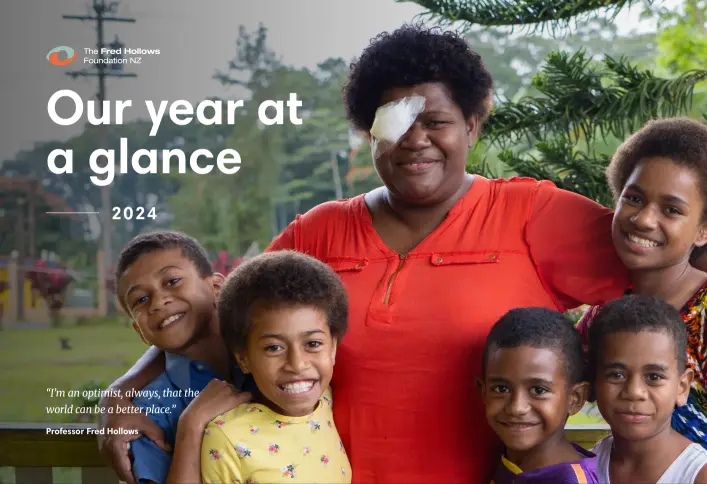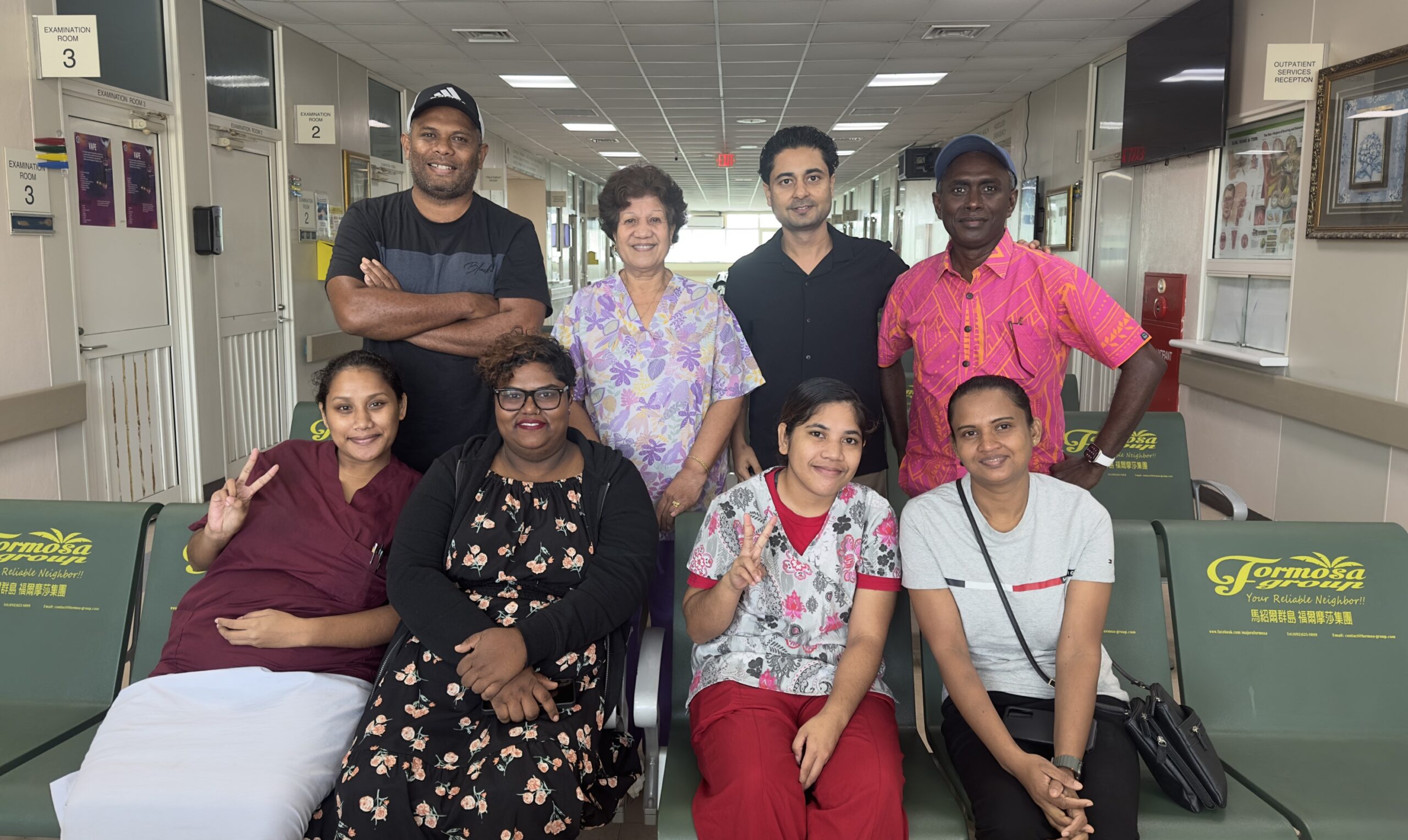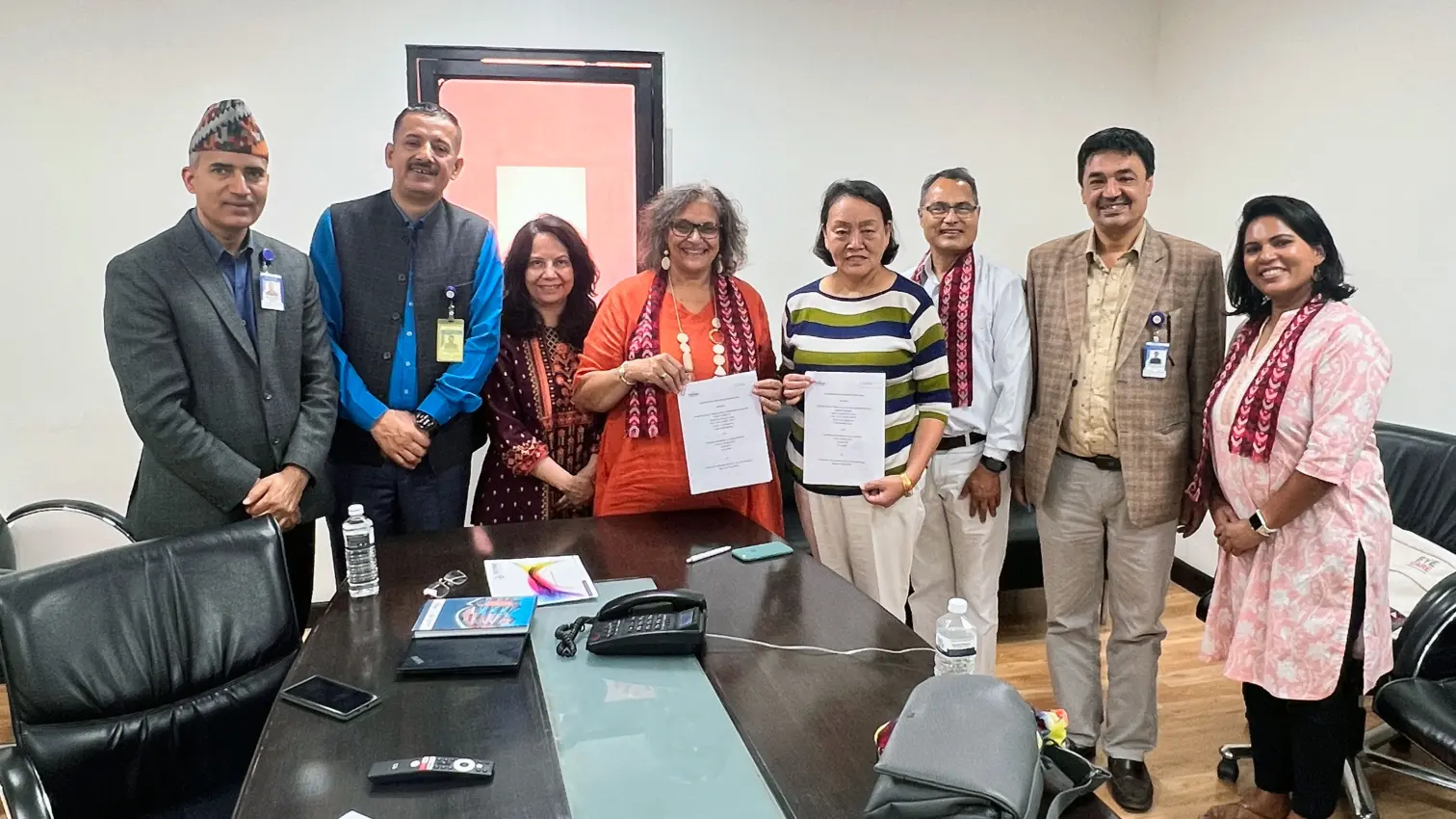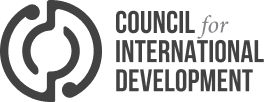Over the past few weeks, our teams across the Pacific have been celebrating World Sight Day. With a special focus on children’s eye health, they held community events, free eye screenings, and school visits to raise awareness and ensure that children across the Pacific have access to the eye care they need to thrive.
Around the world, 450 million children need treatment for a sight condition, and 90 million children are already living with some form of sight loss. Early intervention matters — 40% of childhood blindness could be prevented or managed with proper eye care services.
World Sight Day serves as a reminder that good vision is essential for children’s education, development, and well-being. While our teams work tirelessly every day to provide accessible, inclusive, and affordable eye care, these annual activities help reach even more children and families across the Pacific.
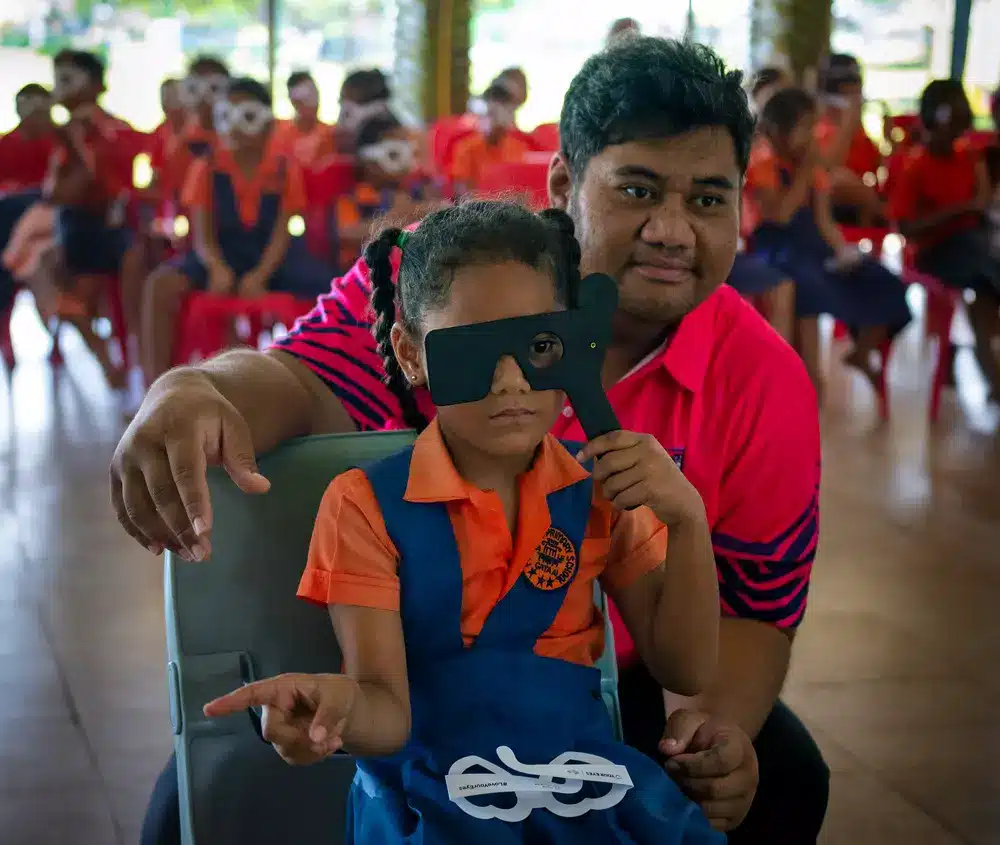
Samoa
Samoa celebrated World Sight Day with an event hosted by Falefitu Primary School.
Run in collaboration with the Samoa Ministry of Health, Ministry of Education, and the International Agency for the Prevention of Blindness, and funded by The Church of Jesus Christ of Latter-day Saints, this event aimed to raise awareness about the importance of eye care, in particular children’s eye health, in keeping with this year’s theme.
Acting Prime Minister (Deputy Prime Minister), Tuala Iosefo Ponifasio spoke to this in his address. “This resonates profoundly Samoa. Our children are the future of our Nation, and their wellbeing is paramount. A child’s ability to see clearly is essential for their education, development, and overall quality of life”. He also highlighted how collaborations such as these are key to Samoa’s goal of ensuring quality eye care services are accessible for all.
As hosts of the event, students were invited to participate, and one stepped up to share why he thinks it is important to care for your eyes. “Love your eyes, because without good vision, it is very difficult to achieve my goals and complete my education.”
The Samoa eye care team then ran activities to teach the students more about their eyes and provided free eye checks to test their vision.

Fiji
This year, the Pacific Eye Institute (PEI) team dedicated an entire week to improving eye care across Fiji.
They kicked off with a surgical outreach in Ba, run in collaboration with Aspen Medical Ba Hospital and Lautoka Hospital. The aim was to reduce the backlog of eye patients in the Western Division of Fiji.
While in Ba, the PEI team hosted a Primary Eye Care Workshop, equipping local clinicians with essential skills to identify and treat eye conditions in the community. This training helps ensure better access to primary eye care, which is crucial for early intervention and preventing long-term vision impairment.
At the PEI clinic in Suva, the team partnered with the Colonial War Memorial Hospital staff to offer refraction services for young patients. They also collaborated with the Fiji Society for the Blind to provide low vision services and devices to children who had been waiting for care. It’s all part of ensuring every child has the eye care they need to thrive at school and in life.
To spread some joy, the team visited the Paediatric Department, delivering eye care activity kits to children in the ward.
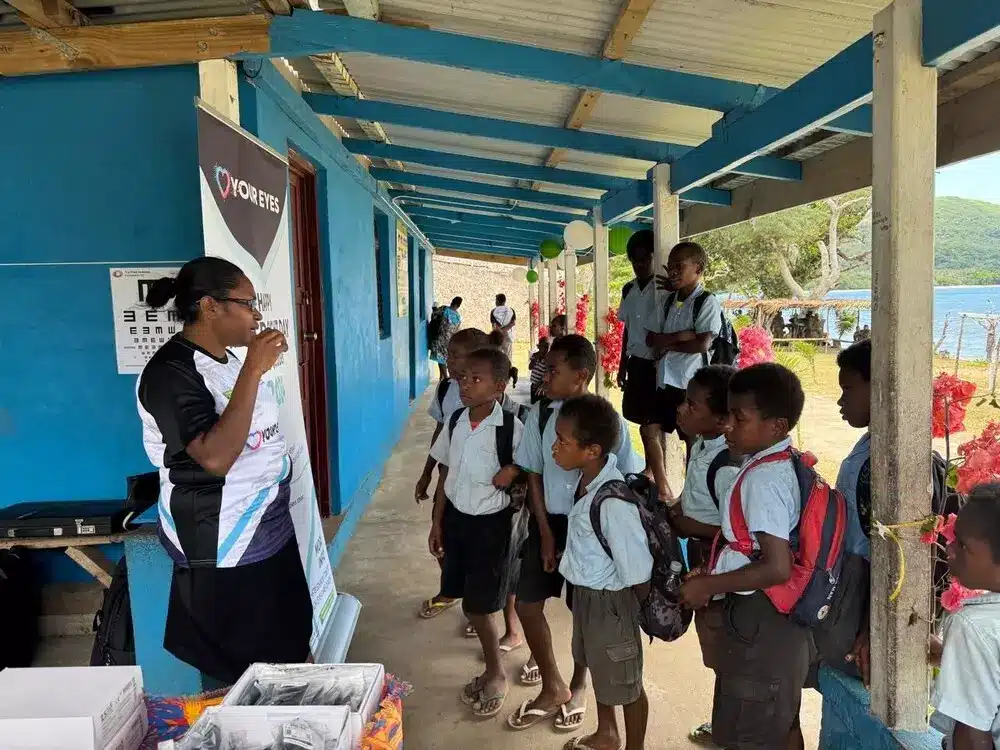
Vanuatu
Our colleagues from Vila Central Hospita Vanuatu National Eye Centrel, in Vanuatu, commemorated World Sight Day by conducting eye screenings on Nguna Island – screening a total of 130 children and 33 adults.
The programme began with an awareness session on eye care at Taloa Primary and Secondary Schools, followed by eye screenings for students and community members. Free glasses were provided during the screenings, along with sunglasses for children to protect their eyes.
The campaign encouraged parents and caregivers to take care of their children’s eyes and inspire children to appreciate the importance of their eyesight. It also aimed to raise awareness about the negative effects of excessive screen time and how digital eye strain can impact productivity and long-term vision health.

Solomon Islands
In Solomon Islands, World Sight Day was marked with a range of impactful activities aimed at raising awareness about eye health, particularly for children. Throughout September, eye screening teams visited schools weekly, testing children’s eyesight and ensuring early detection of any potential vision issues.
A radio talk show organised by the Ministry of Health Communications Team also aired, promoting the significance of eye health and the upcoming World Sight Day celebrations.
On World Sight Day, a formal dinner was held, attended by government dignitaries including the Minister of Health & Medical Services, the Permanent Secretary for Health, the CEO for National Referral Hospital, the Country Representative for WHO, and other key executives. To emphasise the challenges faced by those living with vision loss, the dinner featured a symbolic moment where the lights were turned off, allowing guests to experience dining in darkness for a few minutes. This powerful gesture highlighted the importance of eye care in preventing avoidable blindness and supporting those with sight loss.

